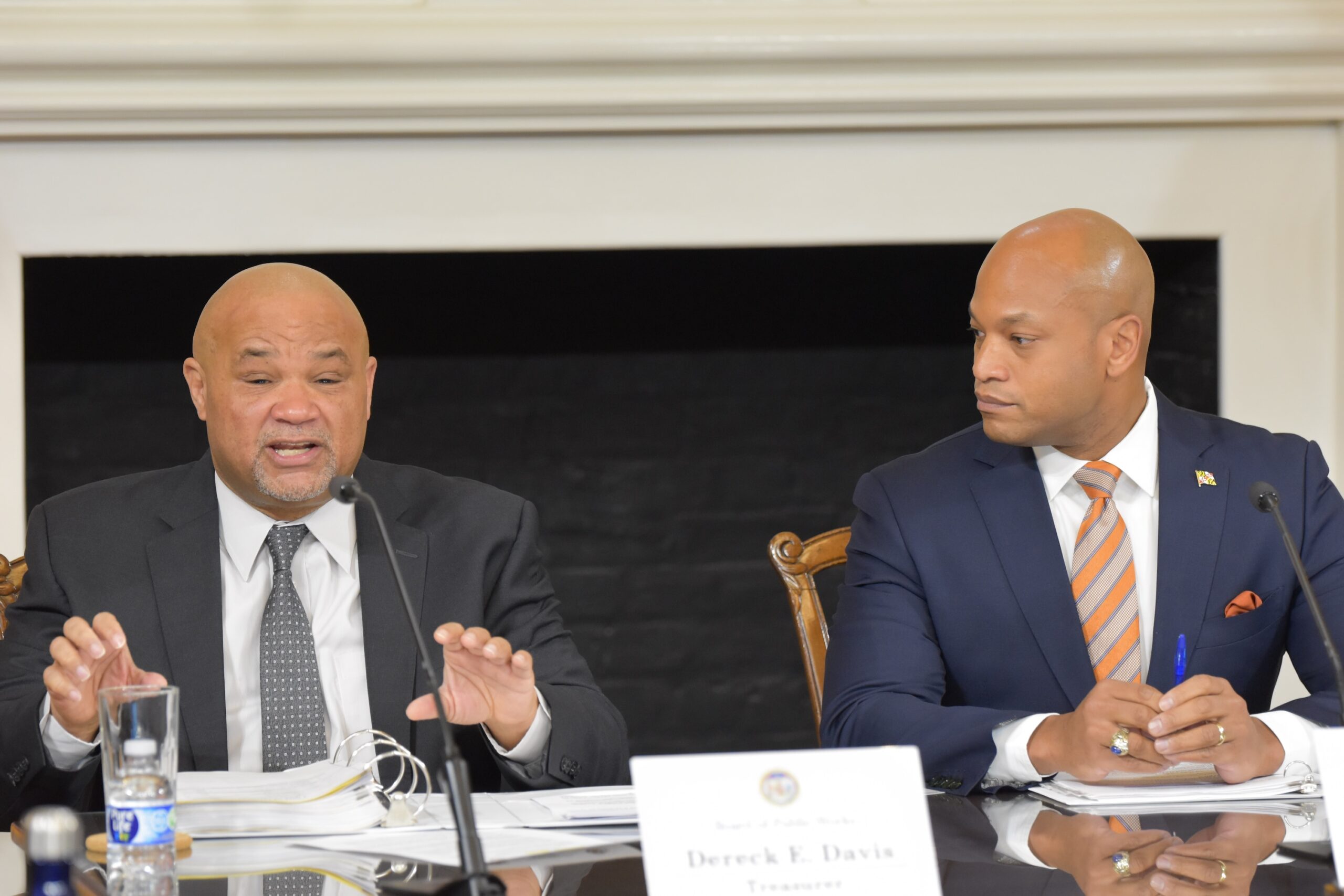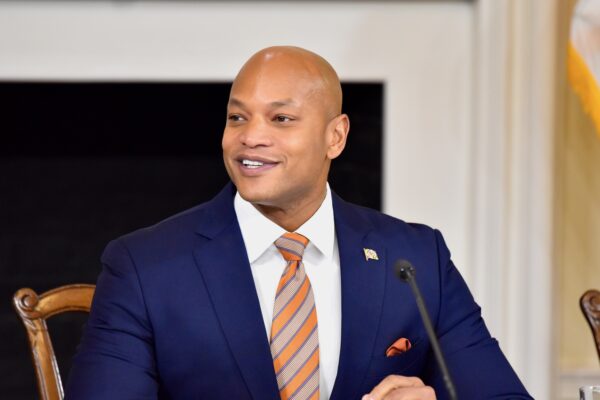
Maryland Treasurer Dereck Davis (D) took aim at the owners of the newly-sold Baltimore Orioles, at one point comparing them to a reviled owner of football team that once played in Baltimore.
Davis vented his spleen during a Board of Public Works meeting Wednesday. The treasurer was not angry about who was buying the team but instead turned his sights on the Orioles chair and managing partner John Angelos for “lying” to state officials during a recent lease negotiation.
“If John can hear me now, it’s deeply disappointing and troubling that you could look your state in the eye and outright lie to us about your intentions,” Davis said, directing his comments to Angelos, who was not in attendance. “We had a right to know given the investment we’re committing to this.”
Just a day earlier, multiple news reports announced the pending $1.725 billion sale of the Orioles to a group led by billionaire and Baltimore native David Rubenstein. Also included in the ownership group is Orioles Hall of Famer Cal Ripken Jr.
The treasurer compared Angelos’ ownership to Robert Irsay, the NFL owner who infamously strung along then-Mayor William Donald Schaefer (D) before loading all the Baltimore Colts’ possessions into semi-trailers and absconding with the team to Indianapolis in the middle of the night in March 1984.
“It’s probably the best thing for the franchise. Maryland has had some wonderful luck with sports team owners,” Davis said, referencing the unnamed Baltimore football team owner.
“Maybe our luck is due to change,” he said.
Moore opened the meeting on a lighter note,
“Happy day. Happy day,” Moore said as he began the meeting.
Moore began by congratulating the Orioles’ new ownership group.

Gov. Wes Moore (D). Photo by Bryan P. Sears.
“We are very much looking forward to the continuation of a strong relationship between the state of Maryland and the Baltimore Orioles,” he said.
“We are thrilled because being able to keep the Orioles in Baltimore for a long period of time was a key priority for this administration, for this team, and we are very proud of the fact that the deal that this group solidified months ago means that regardless of this transaction that will never change,” said Moore. “These are the Baltimore Orioles and they’re going nowhere.”
Following the meeting, Moore expressed “disappointment” about a lack of disclosure from the team that sales negotiations were underway. He stopped short of using Davis’ sharper characterization.
“The transparency that was required, it was not there,” Moore told reporters in a brief exchange. “It’s disappointing. It’s also the reason why we wanted to carve the deal that we carved that says no matter who the ownership group is that this was not going to be a chance for a person to relocate this team. That was a very important component to the deal and to the negotiation.”
The announcement of the sale comes a month after the team and the state reached an 11th hour agreement to keep the team in Baltimore. The deal must still be approved by Major League Baseball team owners.
In addition to gaining access to $600 million in state aid already set aside for improvements to the stadium, the Orioles get use of the stadium rent-free, paying only amusement and other taxes. Additionally, the team gets lucrative development rights for areas adjacent to the stadium — with state oversight.
“It is a private business, and they can do what they want,” Davis said Wednesday. “But when you’re asking the state for $600 million and on top of that you’re asking for more and you’re asking for development rights all in the name of we’re going to do this for Baltimore and the state of Maryland, its people and how much we love, and you knew you weren’t even going to be there. You knew you weren’t going to even be there. So, it was just a lie. We can call it whatever we want. We can dress it up. You just lied. You took advantage of, or you tried to take advantage of people you said you cared about, and you wanted to ensure their long-term viability. Nah, I’m not giving a pass, no matter how great the other people may be.”
Moore, in December and recently, has described the contract as an ironclad deal that keeps the team in Baltimore for a generation.
In reality, the 30-year term has an escape hatch.
If all goes well, the Orioles will continue to nest at Camden Yards through the end of 2053. There are also as many as four lease options for the team that could extend the deal five years each.
How long the team remains in Baltimore could hinge on the completion of a development agreement with the state.
If that agreement is not consummated by the end of 2027, the team would be free to fly the coop after just 15 years.
Angelos, son of ailing owner Peter Angelos, personally pushed for the development deal as part of a live, work, play concept he said could help revitalize the city and make the stadium complex a year-round entertainment destination.
The concept is similar to The Battery in Atlanta near the home of the Atlanta Braves or around Globe Life Field in Arlington, Texas, home of the Texas Rangers.
Angelos led a tour of the Atlanta venue for Moore earlier this year.
The development in Texas was key to drawing the All-Star game to the stadium. Baltimore has not hosted the mid-summer game since 1993, a year after Camden Yards opened. Peter Angelos, a high-profile litigator, has owned the team for 31 years.
Negotiations last year between the state and the team dragged out for months, with Moore at one point jumping the gun to appear on a giant video screen in Camden Yards over a message announcing that a long-term deal had been reached. That agreement was not a legally enforceable lease but a memorandum of understanding laying out the areas to be covered in a more formal agreement.
The lease was approved in a flurry of votes in December, first by the Maryland Stadium Authority. Hours later, in an emergency meeting of the Board of Public Works held inside the iconic Camden Yards warehouse, the Moore-led three-member panel gave the final approval.
Davis, speaking to reporters Wednesday, said the lack of transparency casts doubt on the interactions late last year between the state and the team.
“I have concerns about everything at this point because I don’t know who had what role in all this,” Davis said about the deal. “Did we have dual negotiations going on?”
“Down here, we always talk about your word is your bond,” Davis said. “Once that’s broken with me, it’s been broken.”




 Creative Commons Attribution
Creative Commons Attribution